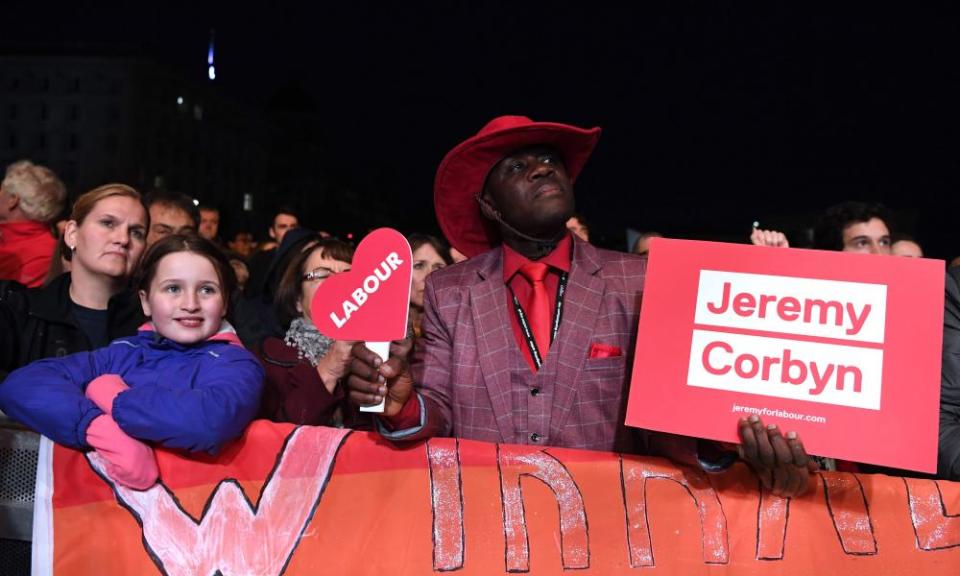Labour’s road to a people’s vote starts in Liverpool

Is this year’s Labour conference in Liverpool going to rise to the occasion and put the party firmly on the road to stopping Brexit?
With mounting support among trade unionists for a “people’s vote”, it would be a welcome outcome if what my old friend and Observer colleague Alan Watkins called “the people’s party” finally got its act together in the interests of the country and all working people.
It was Liverpool in the early 1980s that witnessed the nadir of Labour’s near-capture by the extreme-left Militant Tendency. The shameful absurdity of it all was captured in a magnificent conference speech by Neil Kinnock, in which he had scathing words for a council under the control of one Derek Hatton that had sent redundancy notices to council workers by taxi.
Redundancy notices? Yes, the council’s funds were being so mismanaged that “economies” were deemed necessary. That notice of these economies was being sent to the victims by taxi was surreal.
Last time I visited Liverpool, for the Labour conference two years ago, I was hailed by several proud denizens who, spying strangers, asked me to spread the news about the impressive developments in the city since the early 80s.
A good start on the road to Liverpool’s recovery was made, with that great, go-getting Conservative minister Michael Heseltine inspiring various physical infrastructure projects, and (full disclosure) my late father-in-law, Maurice Stonefrost – probably the country’s leading expert in local authority finance at the time – producing the Stonefrost report, to rescue the city’s financial infrastructure.
Leaving the EU would do absolutely nothing to alleviate the concerns of “left-behind” voters
Alas, local authorities have not been the flavour of the current decade, with austerity-obsessed Conservative governments, and savage economies – or cuts – to services being applied throughout the land. Such needless social disruption undoubtedly contributed to the disillusionment that lay behind the result of the 23 June referendum in 2016.
Which brings me to a timely new book by David Coats, a research fellow at the Smith Institute and former head of the economic and social affairs department at the Trades Union Congress. Entitled – echoing TS Eliot’s The Waste Land – Fragments in the Ruins: The Renewal of Social Democracy, it is a rallying cry for Labour to step back from a return to the early 80s in Liverpool and “make capitalism work for everybody” rather than follow “some illusory politics of transformation, by uprooting all existing institutions and replacing them with who knows what”. As Eliot wrote elsewhere: “Human kind cannot bear very much reality.”
Coats captures the mood that led so many Labour voters to opt for Leave. It was “more than anything, a cry of protest, a howl of pain and an assertion that the economic and social status quo was unacceptable”. Of course, this also frightened the Labour members for such constituencies who, not to put too fine a point on it, have been worried about their future position.
But the crucial point is that leaving the European Union would do absolutely nothing to alleviate the concerns of “left-behind” voters. On the contrary, all the evidence is that it would be a national catastrophe. To make things worse, it would be caused not by some external shock over which we have no control, but by ourselves.
It is therefore time for the leadership of the Labour party to, well, show some leadership. We need less of the defeatist attitude of the shadow foreign secretary, Emily Thornberry, who also happens to be my local MP. In an extensive interview with the Financial Times last week – an interview that gave the impression the FT takes her seriously as a possible successor to Jeremy Corbyn – we were told that “she is unenthusiastic about another Brexit referendum”.
Thornberry said: “We can’t turn around and say, ‘Sorry we don’t like your decision, you’re too stupid, whatever, we’re not going to pay attention to what you say.’”
Well, as regular readers will know, I myself would prefer parliament to “take back control”, stand up and be counted, and vote to ignore the “advisory” referendum and keep us in the EU. But the people’s vote being advocated so assiduously by the indefatigable Lord Adonis and his growing band of followers would be preferable to lame acceptance of the referendum result.
With due respect to Thornberry, there are quite a lot of people who voted Leave who are now becoming more aware by the day of the economic and social damage that potentially lies in store. To advocate a rethink, in the light of events and the showing-up of the Brexit campaign for its blatant lies, is not to say they are stupid.

 Yahoo Finance
Yahoo Finance 